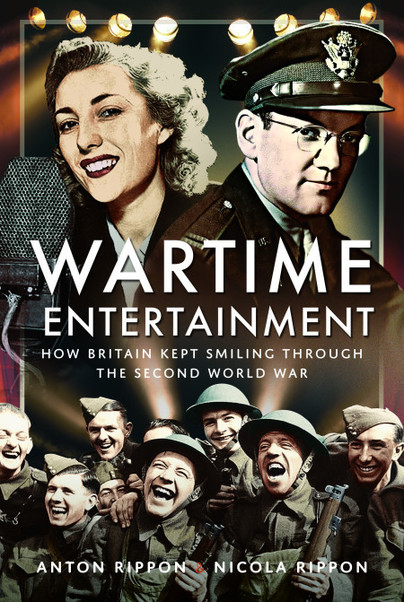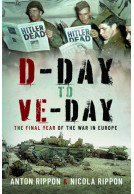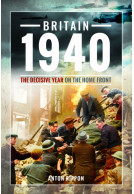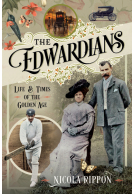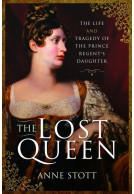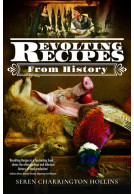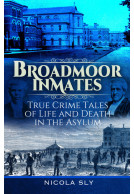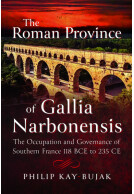Wartime Entertainment (Hardback)
How Britain Kept Smiling Through the Second World War
Imprint: Pen & Sword History
Pages: 208
Illustrations: 16 mono illustrations
ISBN: 9781399034845
Published: 23rd September 2024
(click here for international delivery rates)
Order within the next 2 hours, 6 minutes to get your order processed the next working day!
Need a currency converter? Check XE.com for live rates
| Other formats available - Buy the Hardback and get the eBook for £1.99! | Price |
|---|---|
| Wartime Entertainment eBook (2.3 MB) Add to Basket | £6.99 |
It might have ended 80 years ago, but we still have a warm, nostalgic relationship with the Second World War, due in no small part to the love we have for the entertainment from those turbulent times.
Singers like Vera Lynn – the ‘Forces Sweetheart’ – Gracie Fields, Anne Shelton, and the Andrews Sisters, bandleader Glenn Miller whose fate is still a mystery, films like Gone With The Wind, Casablanca, Mrs Miniver, In Which We Serve, Goodbye Mr Chips, and morale-boosting radio programmes like ITMA, Music While You Work and Hi Gang! all helped Britain to stay calm and carry on as it sheltered from the bombs, worked long hours in munitions factories, and prayed that its menfolk fighting on land, sea and in the air to bring about victory would one day return home safely.
Wartime Entertainment: How Britain Kept Smiling Through the Second World War relives the wartime years, looking at the songs and the singers, at the role that the BBC – ‘Auntie’ – played not only in entertaining the nation but also in keeping it informed, at how West End theatre survived the Blitz, and at the bands that played both the big dance venues and the village halls to raise spirits and, for a few hours at least, lighten the mood of those dark and dangerous days.
The book considers the work of the Crown Film Unit that made short information and documentary films as well as longer drama-documentaries and even a few straight drama productions for the public in Britain and abroad, and at ENSA – the Entertainments National Service Association – that provided entertainment for British armed forces personnel both at home and abroad.
Rating: 5 out of 5 stars
NetGalley, Anna Maria Giacomasso
Entertaining and well researched. An interesting history of everyday life during WWII
Highly recommended.
"This is an absorbing read...Nostalgia indeed."
Journal of the Bristol and Avon Family History Society- No.199, March 2025
Rating: 5 out of 5 stars
NetGalley, Jazmine Collins
Lots of good information presented very well and in a way that doesn’t feel like reading a textbook. Very interesting.
Anton Rippon and Nicola Rippon’s Wartime Entertainment: How Britain Kept Smiling Through the Second World War is an excellent example of how to write a popular history book. There are lots of short chapters, each focussing upon a different star or an aspect of entertainment, e.g. radio, cinema, etc. Each chapter offers some specific documentary evidence such as historical newspaper cuttings, oral history or quotes from interviews; followed by the authors’ analysis, expanding from the specific to the general. And, as well as this technical expertise, what the authors (father and daughter) write is highly interesting.
NetGalley, Colin Edwards
A few statistics are slipped in, such as mentioning that, in 1938, more people in the UK listened to the commercial station, Radio Luxembourg, on a Sunday than to the BBC, but a lot of the information has a human side: George Formby felt so strongly about salvaging paper, he made rounds in his own car to collect paper in Lancashire. Formby also upset a lot of fellow entertainers by claiming, while on an ENSA tour in North Africa, that “most of the stars are in the West End.” This is a tricky one and I’m not sure I agree with George. I think he exaggerated when he said “West End” but if we accept he meant “back in the UK” (or possibly even London), then he was probably right: there were more performers in London than on tour with ENSA. However, who would do more for morale: Tommy Trinder making millions of people laugh with his radio show, or George Formby appearing in front of a few thousand people, but in person? I don’t have an answer, but George’s remark was, at best, thoughtless and, at worst, seeking self-publicity at the expense of others.
This really good book has nineteen chapters, covering the BBC news, the Forces programme, ITMA, George Formby, Vera Lynn, communal singing, dancing, football and many other aspects. It does take a wide view of entertainment – if you’re interested in what people did outside work during WWII, I do recommend this book.
In *Wartime Entertainment*, the Rippons masterfully transport readers to a pivotal era in British history, offering an insightful exploration of how ordinary people found solace and joy amid the chaos of war. This meticulously researched book sheds light on the resilience and creativity of civilians, who transformed wartime Britain into a landscape of unexpected diversions—from cinemas and dance halls to concerts and theater. With vivid anecdotes and a keen understanding of the human spirit, this work reminds us that even in the darkest times, entertainment was not merely a distraction, but a vital lifeline to normalcy and hope. A must-read for history buffs and anyone interested in the power of culture to uplift a nation in crisis.
NetGalley, Bradley Harmer-Barnes
Rating: 5 out of 5 stars
NetGalley, Chris Hallam
War! Hah! What is it good for?
Actually, as this book reminds us, it can be pretty good for generating entertainment as in the Second World War, musicians, actors, comedians and broadcasters alike rallied in an effort to keep morale levels high.
Whether it was George Formby playing on his little ukulele, radio comedians delivering popular but now meaningless catchphrases or Vera Lynn belting out emotionally charged classics, this book serves as a useful reminder of the vital role entertainment played in defeating Hitler.
Rating: 5 out of 5 stars
NetGalley, Robin Joyce
Wartime Entertainment How Britain Kept Smiling Through the Second World War is so much more than a nostalgic trip amongst the entertainers of the time, the familiar films, and the impact of food rationing. All these topics are covered, and include material that is not well known, but where this book shines is in the information about less well-known aspects of Second World War entertainment. The material is enhanced with the occasional comment from the authors – tart, humorous or poignant and anecdotal evidence from conversations recorded at the time or recalled by those were war time adults and children. This, together with the immense amount of research that must have gone into Anton Rippon’s and Nicola Rippon’s book, makes it a tome of testimony to the range of entertainment, ideas, government responses and community acceptance, together with the thrill of finding f new aspects of entertainment on offer at the time. Written in the familiar Pen & Sword style of accessible and lively language, this work stands out as one to devour.
The debates in parliament, the media and amongst interest groups are a fascinating insight into the way in which concern for human life, concern for maintaining the human spirit, clinging to familiarity and the economics of reducing large scale entertainment battled to gain precedence. Sporting and cultural activities became sources of conflict off the field and stage because the large numbers in a confined space were seen as a likely focus for bombing. The arguments and solutions make interesting reading, reminiscent of those that have recently occurred around the Covid 19 pandemic – what are the relative merits of high-level risk to life when considered against the need for social activity? Other debates were more practical – should petrol and public transport be used when both were essential to the war effort? Debates around all the entertainment options are well articulated in this book and are valuable sources of the way in which the war was approached as well as providing information about entertainment.
Wartime Entertainment How Britain Kept Smiling Through the Second World War is a splendid source of information, with details of sources, an index, and photographs.
About Anton Rippon
ANTON RIPPON is an award-winning newspaper columnist, journalist and author of over 30 sports books including Gas Masks for Goalposts: Football in Britain During the Second World War and Hitler’s Olympics: The Story of the 1936 Nazi Games. A former Sunday Telegraph football writer, his sports features appeared in The Times, The Independent, The Guardian, and FourFourTwo magazine. Rippon was named Newspaper Columnist of the Year in the 2017 Midlands Media Awards.
About Nicola Rippon
NICOLA RIPPON is an author and newspaper and magazine feature writer. Her book The Plot to Kill Lloyd George: Alice Wheeldon and the Peartree Conspiracy for Pen & Sword was described as ‘a fascinating story, well-researched and expertly told’. She has appeared on a number of BBC television programmes as an expert interviewee.







